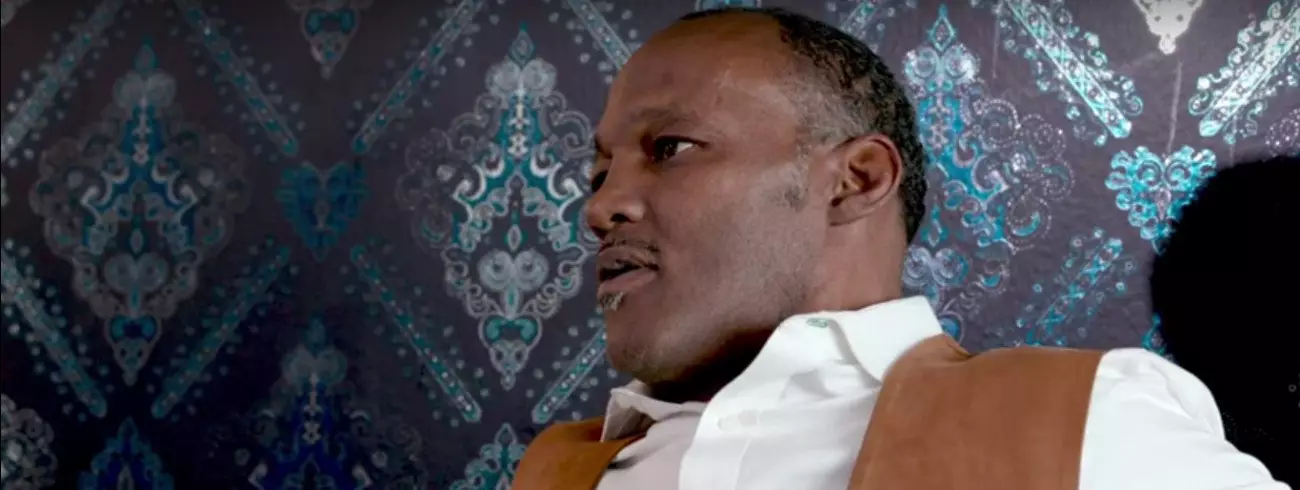Boxing is often considered a sport of brutal elegance, where speed melds with strength and strategy converges with courage. Among the pantheon of boxing greats, Donald Curry stands out not simply for his titles as a former welterweight and light-middleweight champion, but also for the sheer depth of talent he brought to the ring. At the height of his career during the 1980s, Curry was hailed as “The next Sugar Ray Leonard,” capturing the imagination of boxing fans with his swift footwork and powerful punches. Like a shooting star, he illuminated the canvas of the boxing world, earning accolades and respect from peers and fans alike. However, as time may predict, the legacy of athletes often shifts dramatically once they leave the spotlight, and in Curry’s case, it has taken an unsettling and heartbreaking turn.
At 63 years old, the once-vibrant Curry now finds himself wrestling with the debilitating aftermath of his illustrious boxing career. Over recent months, he has been battling not just the vestiges of physical tolls from the sport, but the far more insidious and often unseen challenges of mental health. Diagnosed with Traumatic Encephalopathy Syndrome—a condition typically associated with severe cognitive impairments—Curry’s situation highlights a pressing issue within the sporting realm that often goes overlooked. The condition has significantly affected his cognitive judgment, reasoning, memory, and impulse control, marking a stark contrast to the sharpness that defined his boxing prowess.
Donovan Curry, Donald’s son, has taken it upon himself to solicit assistance on behalf of his father. This heartfelt appeal serves not only as a cry for immediate aid but also as an illuminating reminder of the widespread ramifications of brain injuries sustained in contact sports. The vulnerability of athletes, even after their careers have concluded, cannot be overstated. Donovan’s message echoes a larger societal need to understand and address these often-overlooked health crises, particularly in sporting communities where machismo can hinder discussions about welfare and well-being.
In the poignant social media post crafted by Donovan, he conveys the uphill battle they are facing in securing appropriate care for his father. After a diagnosis at the Lou Ruvo Centre for Brain Health, Curry’s family had hoped for more structured support, as they once found through a church facility in Fort Worth. Sadly, the passing of key support figures, including his father’s former trainer, Paul Reyes, has left a gap that seems challenging to fill. Now, with Curry residing in a hotel, the urgency of finding a specialized facility that does not impose extraordinary costs weighs heavily on the family. In a society where athletes often receive adoration and monetary support, witnessing such a fall from grace is unsettling.
What adds further depth to this emotional tableau is the general regard in which Curry is held. It became increasingly evident that he is revered not only for his athletic accomplishments but also for his character as a sportsman. In the tight-knit boxing community, he is a figure free from scandal, someone whose sportsmanship still resonates with many. As the community becomes aware of his pressing difficulties, the hope is that collective action may mobilize to assist him at a time when he deserves it most.
In observing the plight of athletic icons like Curry, one cannot help but think about the broader societal responsibility that fans, organizations, and governing bodies of sports have. Fundraising efforts could prove invaluable, but beyond that, these athletes’ health and well-being should take precedence long after the last bell has sounded. They have entertained millions, bore the bruises of their dedication, and now confront health issues that reflect the grim realities of their struggles in the ring.
As the boxing community reflects on Curry’s legacy, it is imperative to shift the narrative from glory to support. Institutions that oversee both amateur and professional boxing must prioritize mental health and cognitive rehabilitation for athletes, ensuring that their sacrifices are honored with care rather than neglect. With any luck, the outpouring of support for Donald Curry during this extremely difficult time will inspire a cultural shift, where former champions like him receive the promise of a better tomorrow, one lined not just with memories of glory, but enveloped in care and compassion.


Leave a Reply